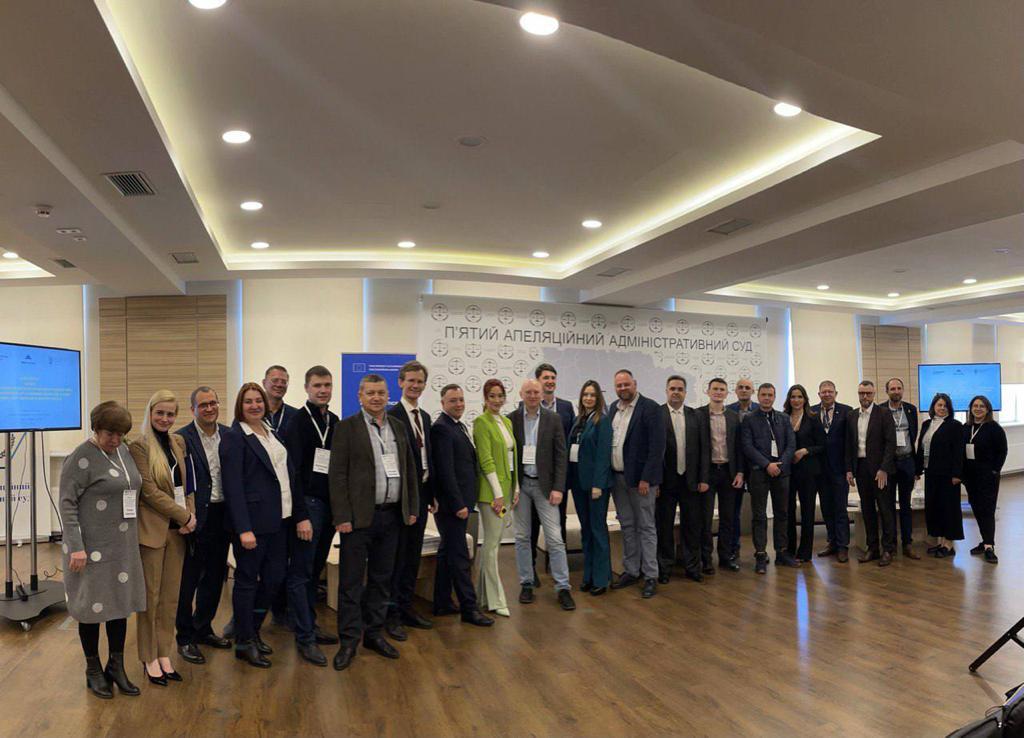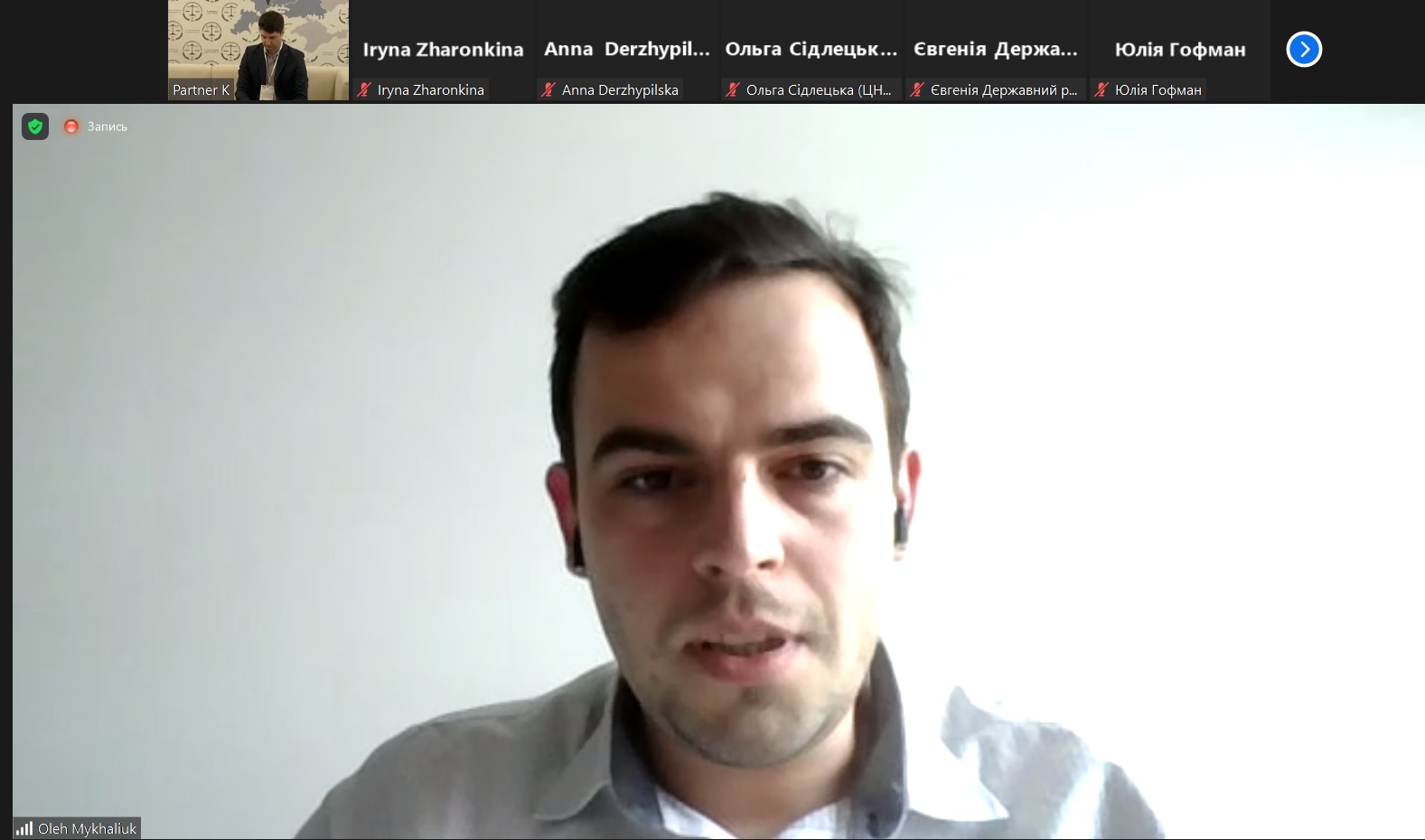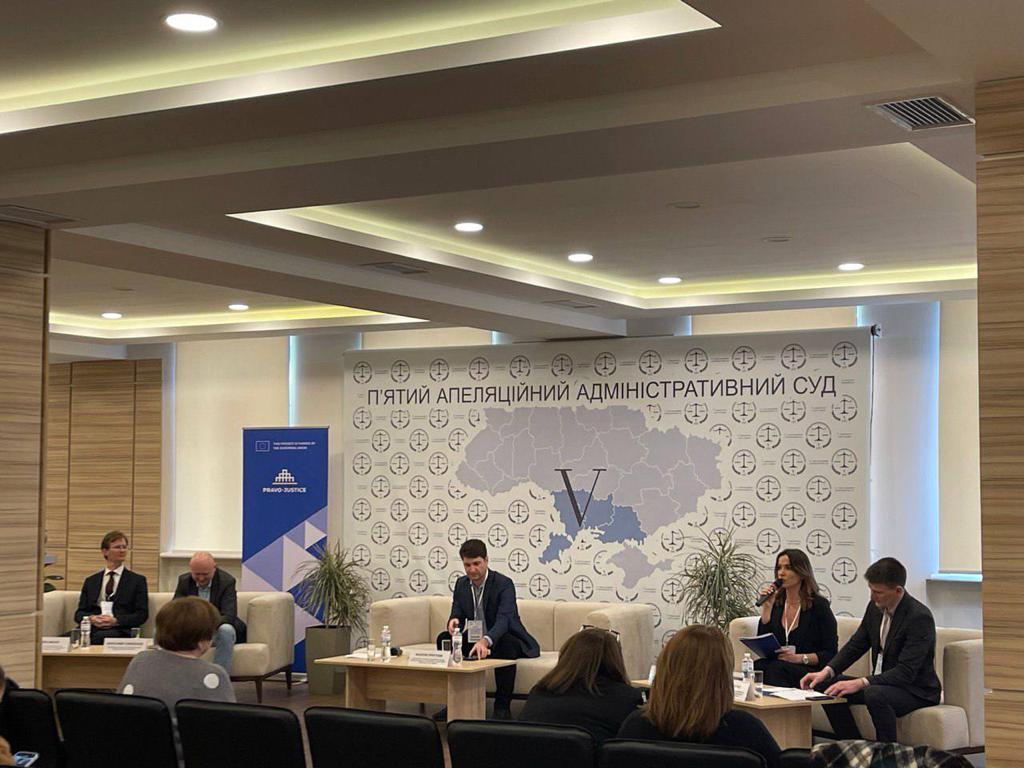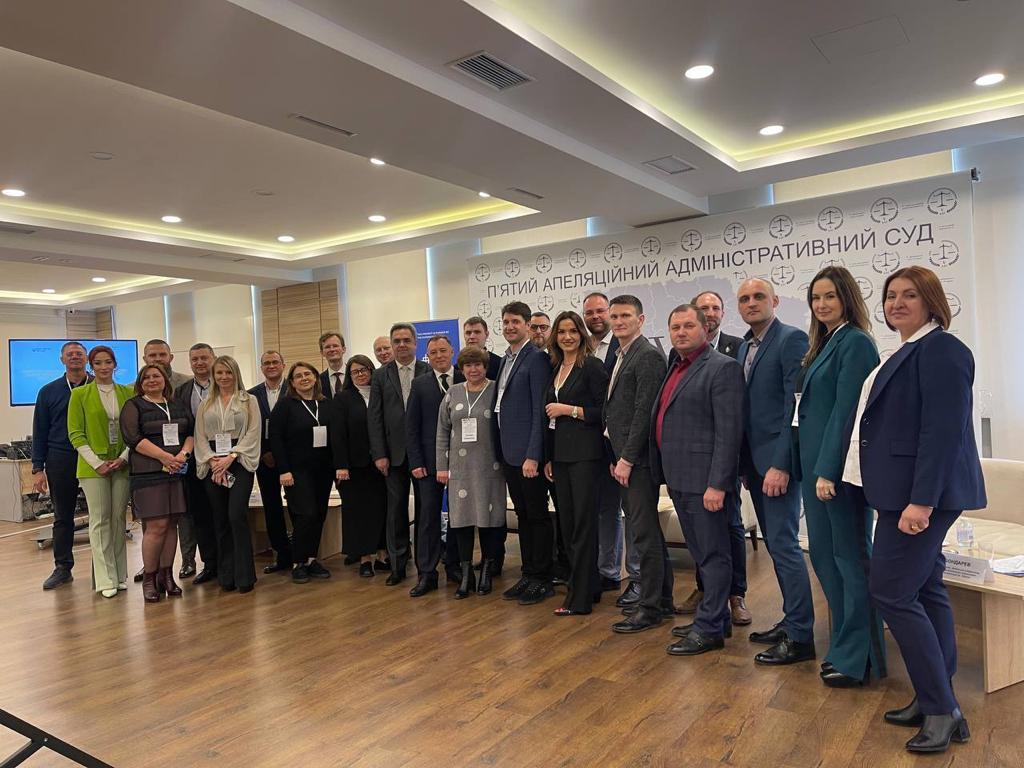How the Full-scale War Affected the Field of State Registration, Notarial Actions, and Enforcement of Court decisions: EU Project Pravo-Justice Took Part in the Networking

On March 24, the EU Project Pravo-Justice together with the Ministry of Justice of Ukraine participated in the networking meeting organized by the Regional Council of PEOs of Odesa Oblast and dedicated to “Peculiarities of Registration of State Property Rights to Immovable Property, Notarial Actions and Enforcement of Court decisions under Martial Law: Theoretical and Practical Aspects”. The event was attended by the representatives of the Ministry of Justice of Ukraine, judges, notaries, state and private enforcement officers, state registrars, lawyers, and experts of the EU Project Pravo-Justice.
“As the Court President, I am fully in favor of holding such networking events. Exchanging opinions, identifying existing problems, and searching for solutions together is what could help to improve the work in the areas that we are going to discuss today,” said Oleksandr Dzhaburiia, President of the Fifth Administrative Court of Appeal, in his welcoming speech.
Andrii Haichenko, Deputy Minister of Justice of Ukraine for Enforcement Service, when addressing to the participants to the event with a welcome speech, spoke about the regulator’s steps to liberalize the legislation on enforcement proceedings, which were taken at the beginning of the full-scale war to make life easier for Ukrainian people.
“From the first days [of Russia’s full-scale invasion of Ukraine], we initiated and introduced changes to relevant legislation. In particular, we allowed people using their funds in case the amount of debt did not exceed 100 thousand UAH. This is 99% of all cases. Times have changed since then. People have adapted to the war, restored work processes, use funds, but do not pay debts; and we cannot forcibly collect anything. Therefore, it is necessary to change the legislation on enforcement proceedings and return to the pre-war state,” said Andrii Haichenko.
At the same time, the Deputy Minister emphasized that the Verkhovna Rada of Ukraine was not keeping up with the legislative initiatives of the Ministry of Justice and quick changes of situation taking place in wartime.
In his speech, Mr. Haichenko also drew attention to the huge number of moratoria in enforcement proceedings. “Today, we have more enterprises that are not subject to forcible collection, than those from which one may collect something,” Andrii Haichenko said. He added that, as difficult as it was, balances should be sought in order not to undermine the country’s defense system, while allowing the state enforcement bodies and PEOs working properly.
Andrii Haichenko also focused on the problem of unstable judicial practice. According to him, the judicial practice regarding the recognition of the SEOs’ or PEOs’ actions as unlawful changed too often, which negatively affected the whole area of enforcement.
Iryna Zharonkina, Property Rights and Enforcement Component Lead, EU Project Pravo-Justice, mentioned in her welcome speech that the state registration remained in the focus of attention of the Project.
“At the request of the Committee on Legal Policy of the Verkhovna Rada of Ukraine, the Project has been conducting the evaluation of draft Law No. 9069 regarding the peculiarities of state registration of civil statuses that took place in the territories of Ukraine that have been temporarily occupied by the Russian Federation and outside Ukraine. The Project is preparing an assessment of this draft law, in particular, taking into account the practice of the ECHR," said Iryna Zharonkina. She also informed that the EU Project Pravo-Justice participated in the preparation of the draft law No. 8205, which regulates the termination of state-owned enterprises, for consideration in the second reading.
“Today, we are witnessing significant changes in the management of state property and state enterprises. The Project is actively involved in the development of the draft law 8205 on the termination of state-owned enterprises. However, one of the biggest issues in the management of state-owned objects is related to the accounting of real estate that is owned by the State, but is not subject to registration, EPTLs, hydraulic structures, etc. According to the existing regulatory framework, such objects cannot be included in the register for management of state-owned objects, since the latter is formed on the basis of the register of property rights and the register of encumbrances”, said Iryna Zharonkina.
“Today, Ukraine’s status as a candidate for EU membership imposes certain obligations on our country, in particular, bringing Ukrainian legislation in line with EU law. One of these pieces of legislation is the 2014 Freezing and Confiscation of Proceeds of Crime Directive. The Project would like to raise the question of whether the Ukrainian legislation fully complies with the norm that the competent authorities should have all the necessary means of searching, freezing, managing, and confiscating the proceeds of crimes," said Iryna Zharonkina in the context of the issue of registering the right to manage seized assets.
Oleh Mykhaliuk, Key National Expert of the Property Rights and Enforcement Component, EU Project Pravo-Justice, covered in more detail the problematic issue of registering the right to manage real estate. He said that the current European legislation stipulates that the bodies that manage seized property shall be given all the necessary rights so that they have adequate tools to preserve the economic value of such property. Adequate tools also mean the possibility of registration of property management. Without such registration, the relevant body is unable to effectively manage the property.

“As of today, the total value of assets in ARMA's portfolio is about 5 billion UAH. In the future, taking into account the sanctions policy, one may predict that the amount of assets managed by ARMA will only increase. Now, the debatable question has arisen: can ARMA register the right to manage such property in the register of property rights? The official position of the Ministry of Justice is that the right to manage immovable property, according to the contracts between the Agency and managers, does not constitute property rights subject to state registration. At the same time, the Law of Ukraine “On the State Registration of Property Rights to Immovable Property and Encumbrances Thereof” does not contain any exhaustive list of property rights to immovable property. The right to manage property is derived and inseparable from the ownership right. Therefore, it is logical that it should be the object of state registration. In this case, the registration of the right to manage would give the possibility to ensure the stability of civil turnover and the real estate market. In my opinion, certain legislative gap should be eliminated by detailing some provisions of the Law of Ukraine “On the State Registration of Property Rights to Real Estate and Encumbrances Thereof,” said Oleh Mykhaliuk.

In general, the networking event was composed of three sections. The first section was dedicated to the issue of state registration of property rights to immovable property and encumbrances thereof under martial law. The speakers outlined the theoretical and practical aspects of that issue. At the second section, the speakers talked about the peculiarities of notarial acts performed by notaries under martial law. The third section became a discussion platform for bringing up the issue of sales of corporate rights and land plots within the framework of enforcement proceedings.

Based on the outputs of the event, the Regional Council of PEOs of Odesa Oblast, with the assistance of the EU Project Pravo-Justice, will prepare proposals on the relevant regulatory and legislative changes relating to the state registration of property rights to real estate, notarial actions, and enforcement of court decisions under martial law.